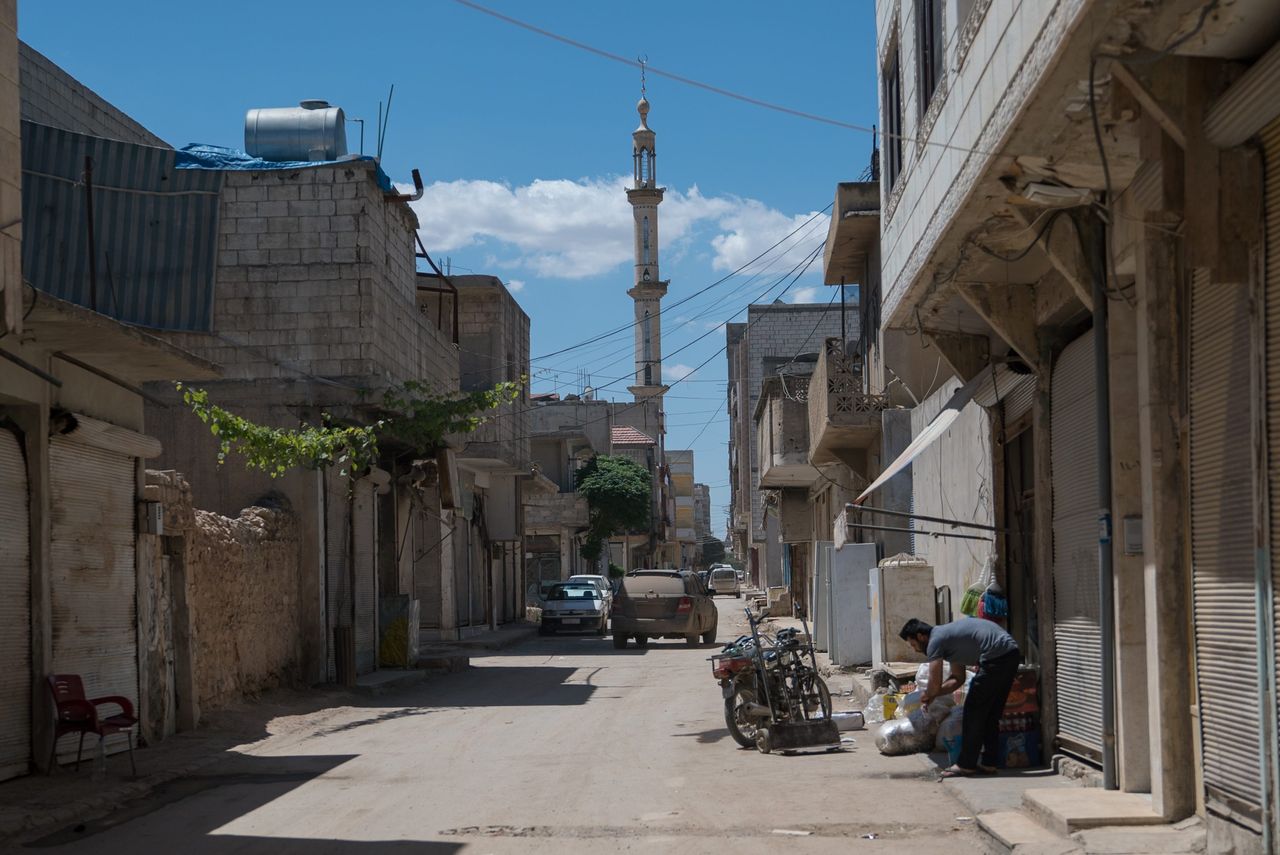
The month is spent by Muslims fasting during the daylight hours from dawn to sunset.
After a whole day of high fasting it’s hard to wait until the sunset. Especially that it is getting hotter and you cannot even take a sip of water all day long. Iftar, a heavy meal is being prepared at homes. As the sun begins to set, the families sit on the floor around freshly prepared food and eat greedily.
Fasting during the month of Ramadan is one of the Five Pillars of Islam. Muslims fast to get themselves closer to God and to remember about people in need. A man is to be purified physically and spiritually. This is also the time of studying the Koran.
No joy, no fun
A practicing Muslim is obliged to eat the first meal (suhur) before the sunrise. It is a meal that should be enough for a whole day. In Syria, it is often bread with olive oil, thyme, cheese or yoghurt. One cannot eat anything more until the sunset. Moreover, one must give up various addictions such as smoking etc. No sex is allowed during the day. A practicing Muslim should be beware of lies, insults and gossip. Even if a sip of water before sunset means breaking a fast, which is a mortal sin.
– We believe that heaven is opened for those who follow the fast – says 66-year-old imam Azad Sufin from the mosque in the Syrian Kobanî. Therefore, his sermon before the prayers was mostly about the meaning of fasting and warning the faithful against breaking it.
After the day of sacrifice, there comes the time for iftar, just after the sunset. The evening meal is usually very heavy. It consists of dishes made of potatoes, meat, broad beans and yoghurt, sometimes very caloric dates. A dish called dolma is popular in Kobanî – some rice and lamb wrapped in grape leaves, stuffed with eggplant or zucchini. Plus yoghurt, mint, hot pepper and other vegetables.
Whole families eat iftar together. Then the taravich begins – some evening prayers in the mosques.
A month of generosity
Fasting is the main duty of a Muslim, but not the only one. – Ramadan is a month of patience. It teaches people to control their whims and needs. It is also a time of remorse and forgiveness – says Sufin.
Fasting – living without food, drink and sex from dawn till dusk is aimed at identifying with the poor. – There are many hungry people all year long. Therefore, the affluent people can feel like the poor ones just for one month – he adds.
Ramadan is also a month of generosity. It is not only about identifying with the poor, but also about giving them the chance to eat iftar in the evening. Therefore, besides the usual charity, one should be more generous to those in need so that they will not be hungry at the end of the day.
The last 10 days of Ramadan are called Iʿtikāf – an intense prayer meditation. Then there is a three-day celebration called Eid al-Fitr – a religious holiday of thanksgiving, a time of gifts, food and festivals. Families go to the parks to have picnics. Being charitable is still important so that the poor could also celebrate this feast cheerfully.
What happens if one fails to respect the fast’s rules?
Ramadan is the ninth lunar month of the Muslim year. It has no fixed date in the Gregorian calendar. This year, the Sunnis have begun the Ramadan on May 16, and the Shiites a day later. The holy month of Ramadan, as Muslims call it, this time will last for 29 days. – It commemorates the first revelation of the Quran to Muhammad – says Sufin.
In some Muslim countries, it is required by law to close stores and restaurants during the day. In Saudi Arabia or the UAE one can get a ticket or even be arrested for eating in public. Although usually there is no official prohibition of any kind during Ramadan, many public places are closed, so as not to offend the fasting ones or not to lead them into temptation.
Women who are pregnant, who breastfeed or who have period do not have to obey the rules of fasting as well as children, the elderly and the sick. People who travel do not have to obey the fasting rules either, so do the sportsmen during the sporting events.
Photo: A mosque in the centre of Kobanî























